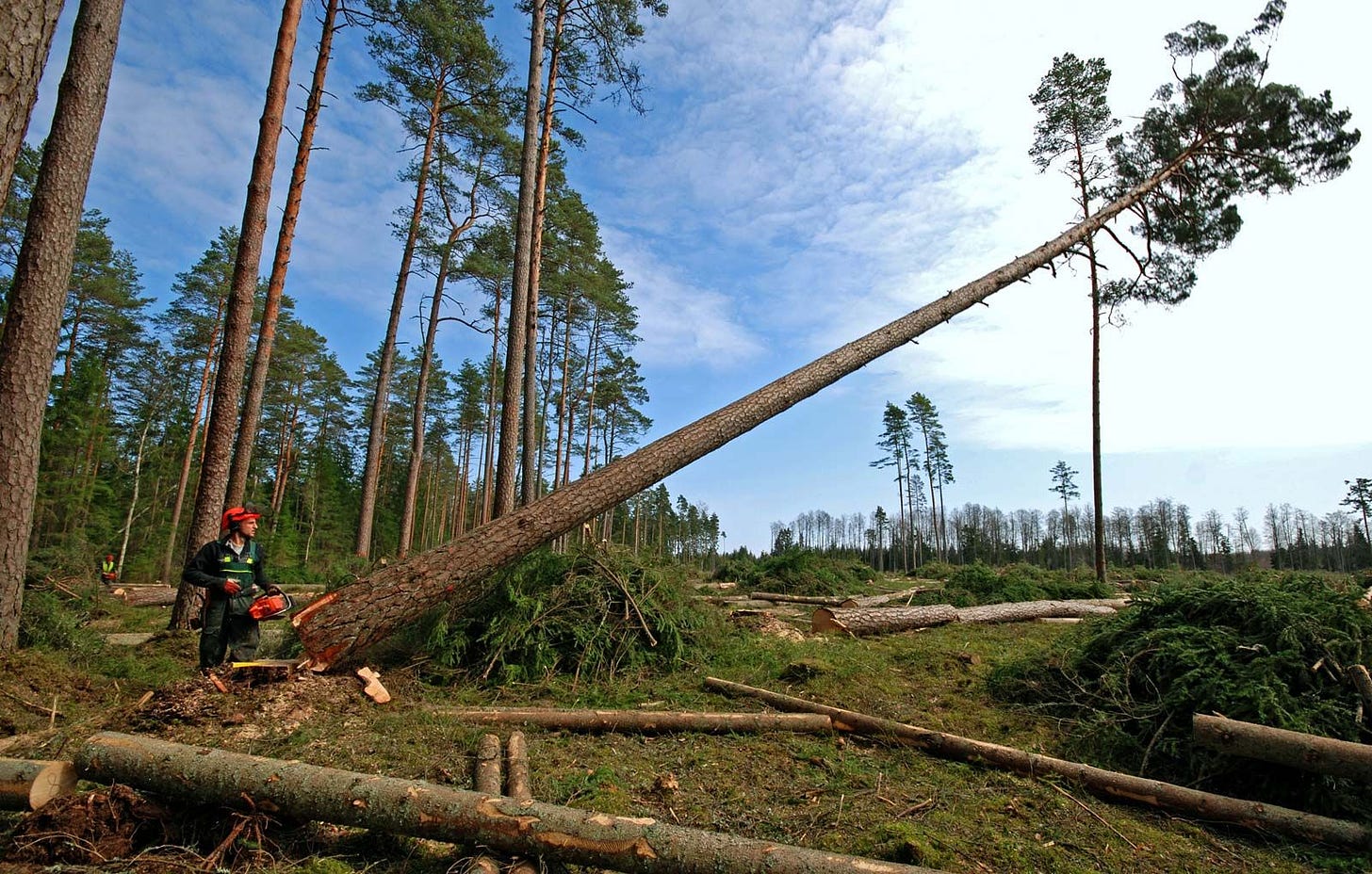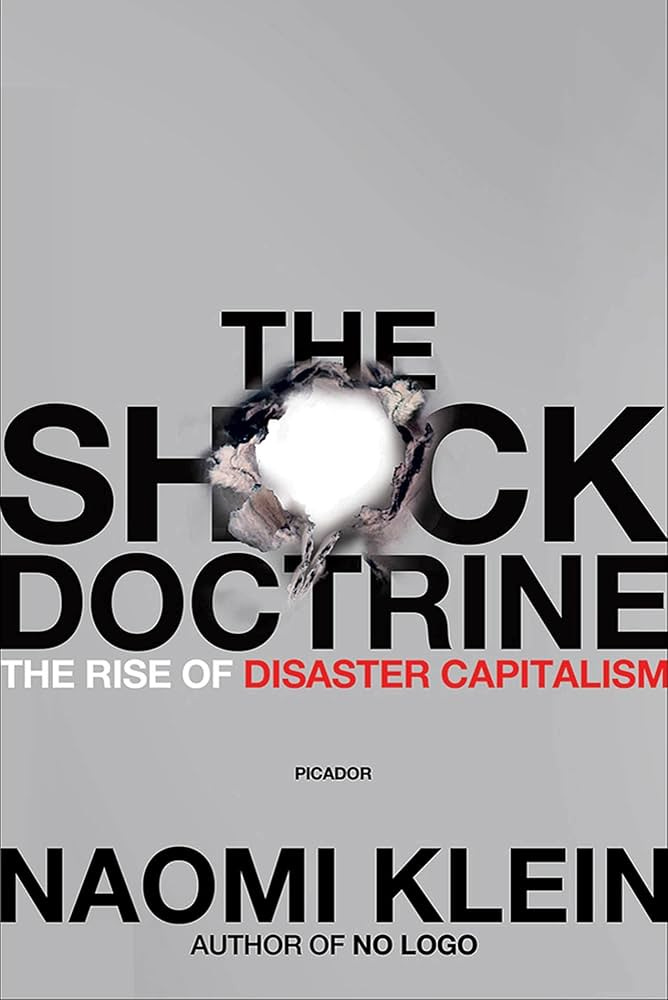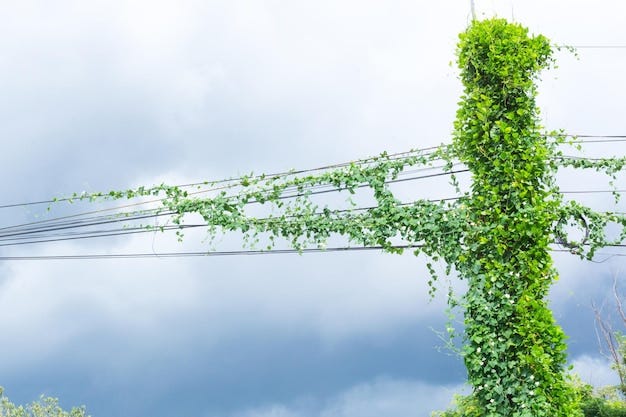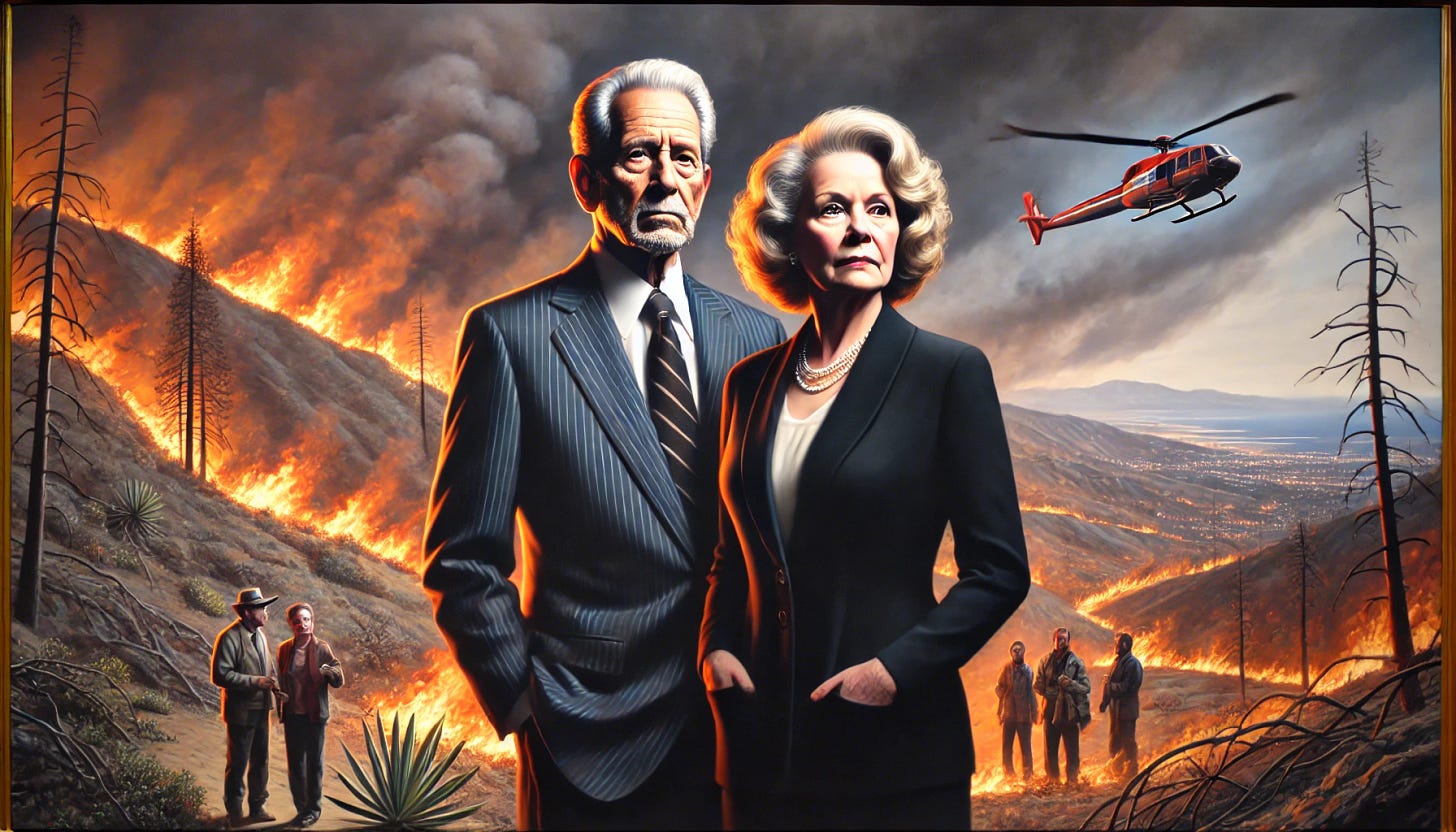#103 Did Capitalism Fan the California Flames?
Some blame Climate Change, others say our economic system contributed. But what's the free market got to do with it?
Climate change is usually blamed for natural disasters, whether it’s the North Carolina floods or California wildfires.
However, anti-capitalists didn’t miss the opportunity to cash in.
But why?
Before we dig in, let’s level set on what capitalism is from Merriam-Webster:

Argument: Capitalism’s Contribution to the Fires
Privatization of natural resources: One billionaire couple owns the state water supply
Private utility companies prioritize profits over infrastructure maintenance
Greed-driven housing developers build in high-risk zones
Private logging operations in fire-resistant forests increase red flag risks
‘Disaster capitalists’ seek to cash in when tragedy strikes
#1 Billionaires Hog the Water!

Stewart and Lynda Resnick, owners of The Wonderful Company, own a large share of California’s water supply to maintain their 130,000 acres of farmland, providing the company with pistachios, almonds, pomegranates, and other citrus fruits.
With popular brands under their corporate umbrella, such as Fiji Water, Halos, and Lewis Cellars wines, most Americans regularly purchase at least one product from the Resnick enterprise.
To ensure their farmland stays hydrated during droughts, the Wonderful Company owns 57% of the Kern water bank, which contains about 488 billion gallons of water saved for not-so-rainy days.
Why do we allow private business owners to own such vast natural resources? Shouldn’t the government maintain such assets to ensure they are adequately distributed among citizens?
#2 Private Companies Increase Fire Risk

In 2022, Pacific Gas & Electric, the state’s primary utility provider, agreed to pay north of $55 million to avoid criminal prosecution for two major wildfires caused by outdated power lines in Northern California.
In addition to the hefty fine, the utility giant submitted to 5 years of oversight, similar to a previous disposition handed down after misconduct was blamed for a natural gas explosion that killed eight people in 2010.
Since 2017, the company has been blamed for more than 30 wildfires, killing more than 100 people and destroying more than 23,000 homes. This is due mainly to failed transformer and power line maintenance and mitigating fire risk caused by overgrowth in and around its infrastructure.
This blatant disregard for public safety usually results from putting profits over people.
#3 Build, Benefit, and Burn

As the need for more housing increases in California, developers push to secure permits and build residential and commercial zones in high-risk areas like San Diego County.
These builders don’t care if the houses last. They just want to collect the payment and move on.
Environmental groups such as the Sierra Club have resisted development with varying degrees of success in legal proceedings.
Unfortunately, like utility companies, these private developers are more concerned with short-term profits than long-term safety.
#4 Private Logging Operations Increase Fire Risk

Paper and logging operations often increase the chances of disaster by destroying fire-resistant forests with trees with thicker bark, more water makeup, and higher canopies.
This practice leaves smaller trees, brush, and debris, known as “slash,” which can serve as kindling under the appropriate conditions.
Also, increased human activity in logging zones can lead to accidents involving smoking, spilling flammable materials, or using faulty machinery.
Companies should not be allowed to put the greater public at risk by destroying natural resources to make money.
#5 Disaster Capitalism

While utility companies, developers, and paper mills put the public at risk for profit, disaster capitalists seek to cash in after catastrophic events.
I used the term “shock doctrine” to describe the brutal tactic of using the public’s disorientation following a collective shock – wars, coups, terrorist attacks, market crashes or natural disasters – to push through radical pro-corporate measures, often called “shock therapy.” -Naomi Klein
For example, private firefighting services favor the wealthy while lower-income communities burn. Recovery efforts by companies like ServPro also widely benefit private companies that charge people to clean up.
Hotels and gas stations have also engaged in price gouging, with insane markups to profit from people’s plight.
Conversely, insurance companies abandoned coverage of many affected homes and businesses after learning about the higher risk of wildfires.
Rebuttal: Capitalism Mitigates Suffering

Private ownership of natural resources promotes innovation, efficiency, and technological advancements in resource management
Poor infrastructure maintenance is the fault of company management, not capitalism
Residential and commercial developers are not responsible for mitigating wildfires
Logging operations reduce wildfire risk
Private companies responding to natural disasters promote faster recovery
#1 The Resnick’s Don’t Control The Water

Seth Oster, Chief Corporate Affairs Officer for the Wonderful Company, told Fortune that there is “zero truth” that one person or company owns California’s water supply, adding that Wonderful Company uses less than 1% of the state’s water.
For context, the company used 150 billion gallons of water in 2021 alone, with similar figures for 2022 and 2023.
While the Resnik’s own a considerable amount of water, their supply has zero impact on water levels in the Los Angeles area.
Jay Lund, vice director of the Center for Watershed Sciences at UC Davis, says plenty of water is in the underground basin beneath LA to fight the fires.
Given the high demand over a large area, the problem is a lack of water pressure.
Even if LA needed more water, transporting it 150 miles through the San Gabriel Mountains would be challenging, to say the least.
If anything, Resnick’s capitalist pursuits have helped people with significant charitable contributions.

And it’s not just the Resnick’s. Many companies donated large amounts of money to those in need:
Disney-$15 million
Amazon-$10 million
Google: $15 million
Netflix-$10 million
Sony: $5 million
#2 Private Companies Are Responsible For Maintenance

PG&E is certainly not blameless here, but its failure to properly maintain infrastructure results from poor company management, not the economic framework in which it operates.
All utility companies and businesses, especially in places like California, are subject to some of the nation's most stringent regulatory practices.
How did they both miss the mark?
Whether the state failed to monitor potential threats or the company neglected the infrastructure to save money, they are both consequences of poor management, not a free market.
#3 Developers Aren’t Infrastructure Managers
Builders can’t just build whatever they want, wherever they want, especially in California.
Whether building a house or business, local and state governments determine who can build what and where. If contractors build homes in areas zoned for residential use, developers can assume it has been deemed safe.
It’s not up to builders to maintain firefighting infrastructure and mitigate risk on a state level.
#4 Logging Reduces Wildfire Risk
Again, logging companies can’t log where they please. Companies must secure permits and adhere to a laundry list of environmental regulations. Should loggers contribute to favorable conditions for a wildfire, that’s once again the fault of management and individuals, not capitalism.
Still, clearing wooded areas creates vast firebreaks, which can reduce wildfire risk. Obviously, it’s in the logging companies’ interest not to burn the state down.
Additionally, tax revenue from logging efforts also funds fire prevention and forest restoration, and logging scouts often find wildfires first as they operate in remote locations.
#5 Private Companies Promote Recovery Efforts

Higher-income communities receive more attention from first responders because those areas contribute more to taxpayer services.
As for the market, one can argue that it is insensitive to advertise solar panels and air purifiers to fire victims, but under capitalism or not, these are things people need.
It’s unfortunate if people cannot afford such items, but if insurance works as intended, these necessities will be covered.
Unfortunately, insurance companies like State Farm cut coverage for many people in fire-stricken areas, not because of greed but because they can’t afford to cover the damage.
Insurance companies do their own research and review other findings to determine the financial consequences of a significant event. Since the government was not doing enough to mitigate risk, the insurance companies’ only choice was to continue coverage and go broke or cut coverage and stay in business.
The Conflicted

During the Maoist takeover in China, the communist government controlled the crops. Millions starved.
In communist Russia, the government failed to properly maintain the Chornobyl nuclear power plants, leading to untold generational horrors.
In communist Cambodia, Pol Pot eliminated private property and money, leading to mass starvation.
If we lived under a socialist or communist state, should we expect a catastrophe-free way of life?
History suggests no. But that doesn’t mean there should be no government regulations. I don’t want to live in a building that looks like something out of a Dr. Suess book.
Still, capitalism or not, wildfires, hurricanes, and floods have existed longer than mankind.
The question is, who would better prevent such catastrophe? People with field expertise and the motivation to make money? Or the government that can’t secure the border, balance a budget, or renew my driver’s license without a headache?
The real problem is bloat. Massive governments and corporations contributed to the disaster by ignoring red flags and failing to maintain infrastructure, as we saw with PG&E. California taxes citizens like no other, much of it for climate-related issues, yet they couldn’t avoid disaster, even if climate change were to blame.
It’s also hard to blame rising temperatures when we see people intentionally lighting fires.
But voters share responsibility as well. California’s inefficient government didn’t come out of nowhere. While we saw much progress in the 2024 election, they voted their way to a single-party state.
Like Smokey the Bear says, only you can prevent wildfires, and only you can prevent communism.
The inherent vice of capitalism is the unequal sharing of blessings; the inherent virtue of socialism is the equal sharing of miseries. -Winston Churchill
Meme of the Week

Brand of the Week: American Skillet Company

Get a high-quality cast iron skillet shaped in the state of your choice, made right here in the USA.
With organic pre-seasoning, your stick-free pan arrives ready to cook. Break yours in with a state-favorite recipe, such as a Wisco-Skillet Pizza Dough, Detroit Style Pizza, or Big Apple Crumble!
American of the Week: John Allen Chapman

U.S. Air Force Technical Sergeant John Allan Chapman selflessly sacrificed his life in the service of our country on March 4, 2002, in Takur Ghar, Afghanistan. John was awarded the Medal of Honor for his extraordinary heroism and bravery that day. John was 36 years old and left behind his beloved wife, Valerie, and two cherished daughters, Madison and Brianna. Remember John today.





More food for thought Greg old chap!